
100% Living & Dying With John-Roger | Part 1 of 2 Part Interview with John Morton
NDH: What’s it like working with J-R?
John Morton: Well, I’d have to answer that as it applies to right now. I’m looking for the superlatives. It’s a deep question because now he’s not really in a body. So that’s obviously different. I have a lot of reference points about when he was here with us physically. But the real key is my experience from his passing—that is, what it would be like working with him after he passed.
He spoke of that really clearly and long ago. And my experience is that it is more powerful now because he had a 10% level (the level of physical existence), and now his 90% (the spiritual level) is 100%. In our teachings when you go from 90 to 100, there’s something about that gradient that keeps going higher. The power and ability you’d need to go from 95 to 95.5 might take the same energy that it took to go from 65 to 95. It’s more intense.
I see that what happened in 1963 was an advent of the Traveler consciousness, where it was determined spiritually that there was going to be another dispensation. In that dispensation is the Preceptor, and that’s of higher consciousness in its nature than the Traveler. J-R didn’t have much to say about it because for the most part it didn’t apply in this world. But then again it did because it was here. I think what was being done was something that’s very difficult to evaluate or even determine, because it happens about every 25,000 to 28,000 years. What is that? It’s big, it’s huge, it’s gigantic, it’s hard to measure, and it’s something that doesn’t happen in a single second. But then again maybe it does. The big bang supposedly happened in a single instant, so they can trace back to a moment when this reality came into being. There’s a reality that we’re in that is beyond our mind to comprehend. And there’s a reality that is beyond that, so that even if we determined that everything in this reality came into being 13.7 billion years ago in an instant, and everything came from that, and its density is beyond anything we know, so it’s smaller than the smallest particle—still, it is constantly expanding. Anything material that can be measured physically (like a galaxy) is in motion. There’s nothing that’s static. So this reality is done, but it’s not finished in its evolvement. And we’re in that as a Movement that transcends, because we’re of a spiritual nature.
J-R brought in a consciousness that is the knowing of this. How would the creator advent itself, how would it manifest itself? It would have a consciousness, an order. If we were capable of seeing the order, like someone who could see the Preceptor consciousness enough to know what it is, then we would have to be in some way beyond it so we could observe it in its wholeness, with altitude, and then be able to put it in terms that we could relate to. That would be called stepping itself down.
So, what’s it like working with J-R? What’s it like working with God? To me it’s like the same question. Some people might say, come on, he was an ordinary guy, he bled, he farted. Am I saying he’s God and we’re not? I’m not saying that, I’m saying that in some way he was assigned the job to speak for God, or be God, or express what it is, and he articulated it, but in this very ordinary, down-to-earth way that many people would dismiss.
People go, “If he does that behavior, or talks like that, he’s not God. God wouldn’t do that.” Well, what makes you think that? What if God comes down to earth and in a sense is like one of us, like in the song, “What if God was one of us?” And we’re also God, but we just don’t remember. There’s the difference. J-R said many times that the difference between me and you is that I forget a lot of things, like your name, but I never forget I’m the Traveler. He was very emphatic and he said it very specifically several times, that “I’m the Traveler incarnate, or in the physical, and I have these keys that you don’t have, and what they allow is that I’m in connection.”
So to me he was someone who was always winking. Then you ask, “Why are you winking at me?” I have all kinds of references, and they go on and on and on, and ten times or a hundred times that much I’ve also forgotten.
But they’re somewhere here in my life experience and I don’t remember. Once we were at Lake Arrowhead and we checked into a hotel for one of the retreats. I was unpacking J-R’s suitcase and it was just J-R and me there. There were two rooms, a living room and a bedroom, and I went into the living room and he wasn’t there. I went out to the relatively small parking lot that’s fenced in, and J-R wasn’t there. I went back into the living room and didn’t see him. At some point I’m looking under the bed, in the closets, in the shower, behind a chair, anywhere that his body could possibly be in the room. I looked in the office, all around outside—and I did this at least three times. Then maybe the fourth time I walked back in the living room, and he’s sitting in a chair with a big grin on his face, and says, “Where have you been?” I say, “Looking for you.” He says, “I’ve been here all along.” I say, “No you weren’t, because I looked in that chair.” And it was one of those conversations, where I’m starting to get goose bumps and my head is starting to wobble. I’m going, “OK, the only explanation is that you became something that I could not see physically.” And he just says, “I was sitting right here.”
He didn’t explain it. And that was part of how J-R would relate. He’d take you so far and then it was like, “You figure it out.” Very early on he said, “I’m not your ‘Shell answer man.’ I’m not here to just answer your questions. There are a lot of things I’m doing that you don’t have any idea about, and I’m not here to stop what I’m doing and have you interrupt things.” It was like, curiosity is not cool. My attitude was, I can’t help it, I’m going to be curious and wonder how he does that, but I realized that if I’m going to work closely with him my place was not to pull on him.
Here’s another example. This had to be within a month after I arrived at J-R’s house at Mandeville. We’d get J-R’s newspaper and put it on the dining room table. Someone who was doing volunteer work there decided to open up the newspaper and read it. Later on J-R asked, “Who’s been reading the newspaper?” It was like, “How do you know?” J-R said, “I can tell. Their vibe’s all over it. I don’t want that. If I read it I don’t want to have to read their aura and whatever’s going on for them while I’m trying to read the newspaper.” So that became one of my jobs, to make sure he got a clean newspaper.
I also came in while he was reading the newspaper and I popped out a question about some mundane thing like what shirt I should pack in his suitcase. He lifts his head up and says, “I bet you think I’m reading the newspaper.” I can still feel the sinking feeling, like, “Yeah, I did think you were reading the newspaper.” And J-R says, “Was whatever you were asking about more important than what I was listening to when the Lord was talking to me?” I felt like some thing on the floor at that point…I’m pausing because it still gets to me. I understood that this guy was playing at some unbelievable level that I was just so clueless about.
I would ask myself why I would be around working this closely when I didn’t seem to have the sensitivity, the awareness, the perception, the clairvoyance, anything you want to call it, to be able to be properly attuned. But I just figured there was something about my willingness to serve—I’m going to claim that—and my willingness
to adjust to his way of being and what it called for. It called for a lot of sensitivity, quiet, respect and surrender. And it also called for some kind of understanding because J-R was a rascal, a kind of troublemaker, a kidder, with a great sense of humor—as anyone who was around him knew. He liked to pull practical jokes and all kinds of antics that made him unpredictable. Surprises were part of the deal.
I saw myself early on as someone who was just trying to help. And I felt like kind of a bungler, or thick and insensitive, but I still had the willingness. And I knew that was a key. I knew that if I made an error or if I stepped on something I shouldn’t have stepped on, there was a willingness to correct me (J-R was not hesitant to make that clear) and at times that was intense. It wasn’t about, “How do you feel about that?” It was like, “You have the responsibility for your feelings so if you think I’m responsible for your hurt feelings, I’m not. I need people who can deal with what we’re doing here so nobody gets in the way of the work.” He used to say that a lot: “Nobody gets in the way of the work. Including myself. I don’t get to get in the way of the work.” That was the phrase—”the work” and it referred to something that was bigger than all of us. We were all doing “the work.” I have a lot of those stories about what it’s like working for J-R. I could go on all day, for days, talking about all kinds of ways I experienced working with J-R.

NDH: Did it change over the years? Did you feel like less of a “bungler” as it went on?
John Morton: Yeah I definitely learned a thing or two. I started at around the end of ‘78. My intention was to get to J-R, to get to where he lived, to be close to this guy. When I had a meeting with him to listen to a tape of my ministerial ordination it went on for seven hours. At the
end he asked if I was hungry, and I said yes, and he asked me to come along to dinner. He asked where I was staying and I pointed to my car because all my things were in my car which was parked in the parking lot. And that’s when he offered me the motor home that was on the property. Later on, when one of the staff left, I moved into a bedroom. I made a determination that I wasn’t going to leave until I was asked to leave—which violated how
I was raised, particularly by my mother, which was to be polite, to be honorable, to be respectful, a “good guest.”
I wasn’t asked to leave, and then other staff left, until at the beginning of 1988 it was just J-R and me. Then lo and behold, the next thing I’m the president of MSIA in early 1988, and then a couple of months later J-R is asking if I’m interested in being the next Traveler. My response was something like, “If I’m helping you J-R. Whatever that means, I’m in.” He said Spirit was deciding this, and often that’s how he would describe where these things were coming from. So clearly there was a difference when J-R was deciding it and when Spirit was deciding it. For the Traveler part, clearly Spirit was referenced as deciding this.
At that point I realized that I had endured. One of my final “tests” if you will, was when J-R was having a very difficult time in 1987, physically and health-wise. His blood pressure was up, he gained weight, and it was very difficult because it was the era of the Los Angeles Times articles came out about John-Roger and MSIA. It was challenging not just for John-Roger but for anyone working on staff that year. Things were changing and shifting, and not in ways that I personally liked or agreed with or understood. It was a year when everyone was being tested or measured to see how they would respond. J-R told the three of us that were still there in 1987 that he was getting so sick that he couldn’t stay in the house because the negative power was there so powerfully. He said, “Either you three have to go or
I have to go. So I’ve ordered up applications for Prana residency and I’d like you to fill them out.” For me, that was like, “You want me to go to Siberia?” God bless Prana, and I have stayed there one or two nights, but once I was with J-R I didn’t want to be anywhere else. Things changed after I became the Traveler and got married, but in that period of time I just wanted to be with J-R wherever he was.
So I filled out the application but I waited two or three weeks, and I’m pretty certain that the other guys didn’t fill out the application. I brought the application to J-R and I said if I’m in some way making you sick and bringing the negative power into this house, then I’ll go. He basically told me, “That’s OK, what the negative power is doing is about finished. If I were you I’d just stay out of the way. Just go on about your business.” He said I didn’t need to submit the application, it was just a way of seeing who was willing to cooperate and who wasn’t.
That was probably around November of 1987. There was a lot of other stuff going on in the administration of MSIA at the time other than the focus of the work of Soul Transcendence. I considered that I took care of J-R and attended to him, but there was also a lot of work in the area of public relations and getting ready for the LA Times article, that kind of thing. That was in large part the area that I didn’t agree with or understand. Over the years newspeople had asked to talk to us about our work and we would respond. But to make that the prime focus of our business, and try to prepare for what the newspeople might say and strategize a response, I just thought, “That’s off.” We needed to just focus on the work.
It was good work. People weren’t disagreeing with what was going on in the work, they were finding fault with people’s personalities and making things up about the purpose of the organization.
NDH: I have this image in my mind from around 1987 or ‘88. I had hitched a ride in a car that was part of J-R’s caravan. I remember seeing you, and the sense I had was one of total dedication, and also exhaustion, like this is a
guy who’s been going non-stop for years. But with a dedication that overrides any personal considerations. There was just this very strong, steady focus that was like, we’re just going in this direction and everything else gets sacrificed.
John Morton: In 1988, when the president of MSIA (who had also been living and working with J-R since the early 1970’s) and another staff member (who had been there for five years) both left at the same time, around February of ‘88, it was just J-R and me. I told J-R, “I don’t want any of the work to falter—the seminars, the workshops, MSIA services. Rather than do any kind of adjustment where we cut back, I’d like to see if we can do what’s already been planned.” I remember the first trip that was up was Australia, with a pretty full schedule, and J-R agreed, and we brought in people who had just been learning to do services, we called whoever was available, and we went and did everything scheduled. I had such a great experience with that. I know that Paul Kaye and Vincent DuPont were called in and for a while they were on every trip. Angel Harper was there with her then-husband, and I was also doing the services. And we had to learn how to do the NOW Productions (audio/video) part of it too.
It was at a very professional level. It was intense, with very full days, day in and day out. But the energy was there. Maybe I was exhausted and I didn’t know it, but I look back and I consider that we did the work and we did it with excellence. We didn’t falter because we were too exhausted and we were making mistakes. We just stepped up so Spirit could do what it does. When I look back, we didn’t skip a beat. I think that was part of what prepared me for what I’m doing now.
It’s interesting to think back to Roger Hinkins and his personality and expression, and then think of what he stepped into…and then I think of how I stepped into what I’ve stepped into. I stand up there and I do look at it as speaking for God. That’s the best way for me to look at it when I do this work. I just see my time with J-R as having prepared me for the next logical progression. When I was the president of MSIA I was doing everything I could to pick it up so he was free to do what was primary for him. From day one J-R needed to be out of the body. Anyone who worked with him would tell you lots of stories of how often J-R was “down” which was code that meant that the body’s down.
We all have the opportunity to be out of the body with our eyes open, even if you’re driving a car. I wouldn’t recommend that for safety reasons. But I’m sure Jsu and Nat, who also drove J-R, could tell you how it’s not an easy job to be driving the car while
J-R is “out” and you in some way experience yourself “out” with him. I don’t know how far out I would go—and we’re not talking about miles, we’re talking about realms. Clearly I experienced myself out of the body and many people would recognize that feeling and call it “sleepy.” But in MSIA we’re talking about an attunement that shifts into soul awareness and soul body travel, and that to me is exponentially different from psychic body travel. I was learning how to step into that.
Then once the Traveler mantle came along in 1988, I didn’t grill J-R about it, because of the way I was with J-R. I didn’t say, “Can I see the manual for being the Traveler now?” There was no such thing.
And I didn’t ask for an explanation. I was built to not do that. It’s not like I didn’t ask questions at all, but as much as possible I tried to determine the answers from my own experience, and then be open.
So once I had the mantle at some point he was more or less making me do the seminars. In Berlin for the first time I was called upon to address the group. J-R was wrestling with me to sit me down in a chair, in front of everybody. And my attitude was, “J-R, I don’t want to do this.” But it was like, no, it’s time for you to do this. You’re the Traveler, you have the keys. You can’t just keep refusing. You have to step into this.
That’s how I went into it. I don’t really consider it to be a seminar because I was in so much resistance that I wasn’t in a state of mind to be open. But the energy came in so people got the experience. I think people realized that even though John doesn’t seem to have a clue about what he’s saying, the Traveler consciousness is walloping us in an energy field that people recognize. Over the years I’ve really thought, “Wow, the difference between J-R’s attunement and my attunement is so huge, I don’t even know how to measure that.” But just the same I’ve witnessed over and over that the Traveler consciousness is the Traveler consciousness. It doesn’t come in diminished.
But it’s also in everybody, so it’s not like it’s dependent on a body; but, mechanistically or practically, it uses one. It uses a body that is anchored, so it can anchor itself to a body.
It needs that body to get into the level. I’ve had that experience all along. If I just have the willingness to step up to the plate, to get in a chair…I just tell people this ministry is one of showing up. And then over the years many times I’ve looked at as, “What am I going to talk about? I have this assignment,” and then I realize, “Just get up there and say whatever comes present.” And that’s what you see. I get up there and the attunement comes in.
What is that? Is it channeling?
No. J-R made it clear that we’re not doing that, we’re not going out of the body so some other consciousness can come into
the body. So what are we doing? Attunement. That attunement can be something like… “at this moment I’m in the mind of Einstein.” How did I do that? God knows how to do it all. What’s the big deal? It can keep shifting itself. It’s a consciousness that is all, knows all. Capacity is a misnomer. I doesn’t have capacity, or you could say
it has endless capacity. So there’s nothing it can’t do.
Why would God make a rock so heavy he can’t lift it? God’s not that stupid. In that realm there are no rocks, there are no limitations, there’s not even gravity. So it’s all weightless. If you try to do it here in the world, it’s in another framework. How we perceive and express it here is different. J-R made it so clear that you have to be here in this world, you can’t not be here. You can’t just check out of this world, you have to deal with it. We all resist and say we don’t agree with how my physical body functions because I have these other awarenesses of a body so clear and free of the physical. So what? We all have that. Deal with this, do the best you can, but also you have an opportunity to do attunement to what’s higher.
Click Here To Read Part 2 Of The Interview
Featured in the Online Magazine May 2015







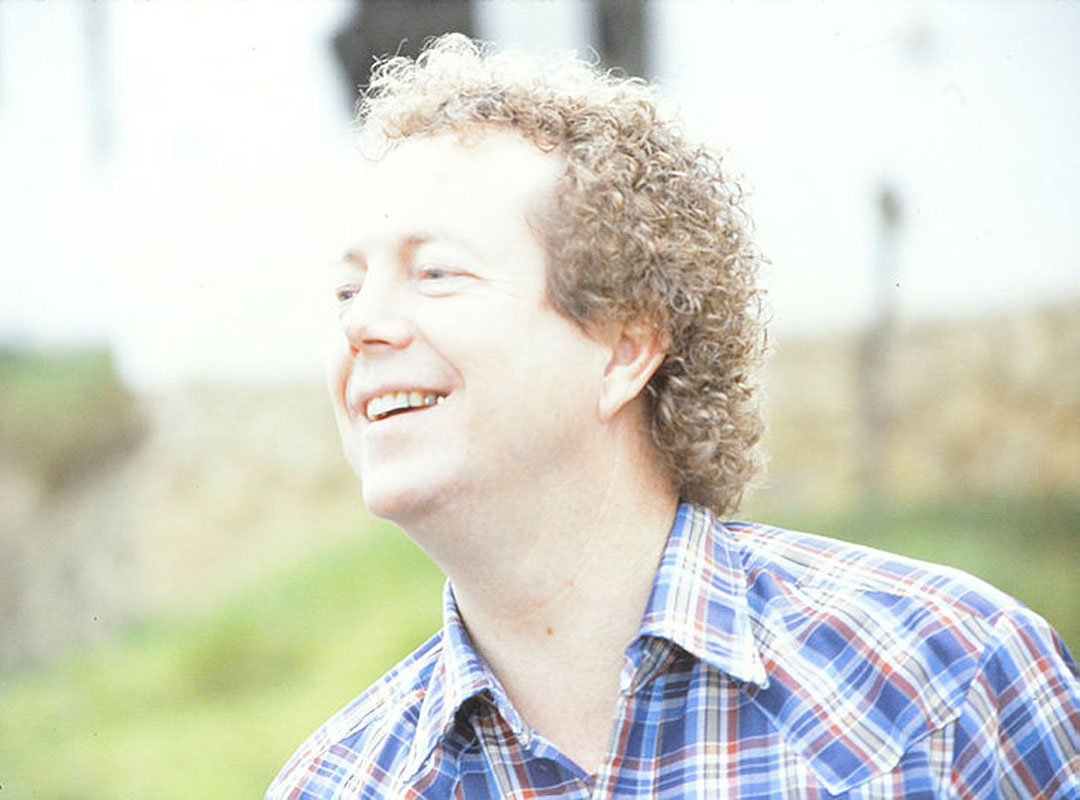
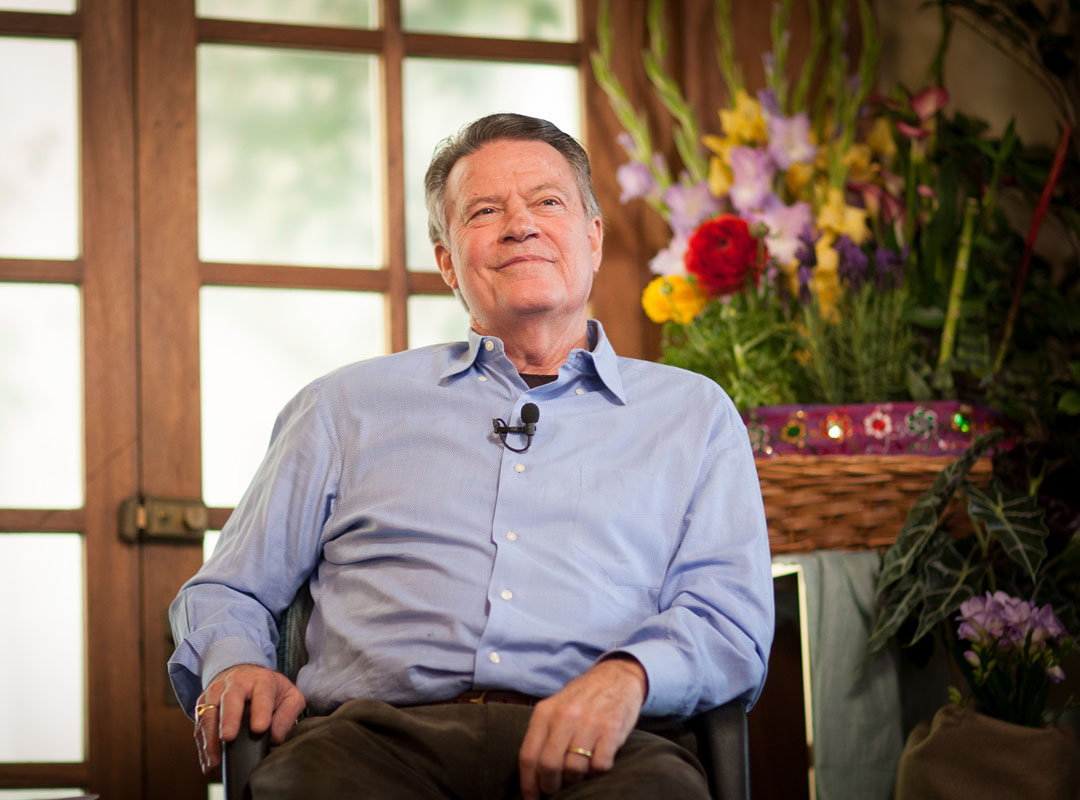
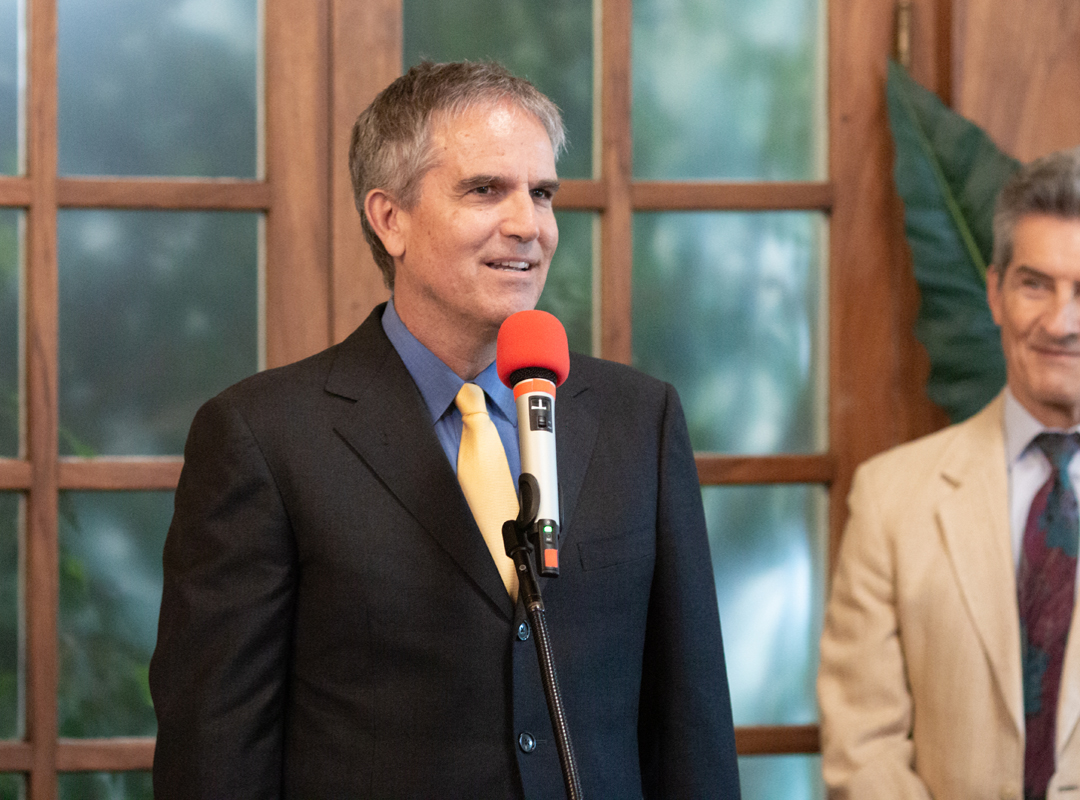
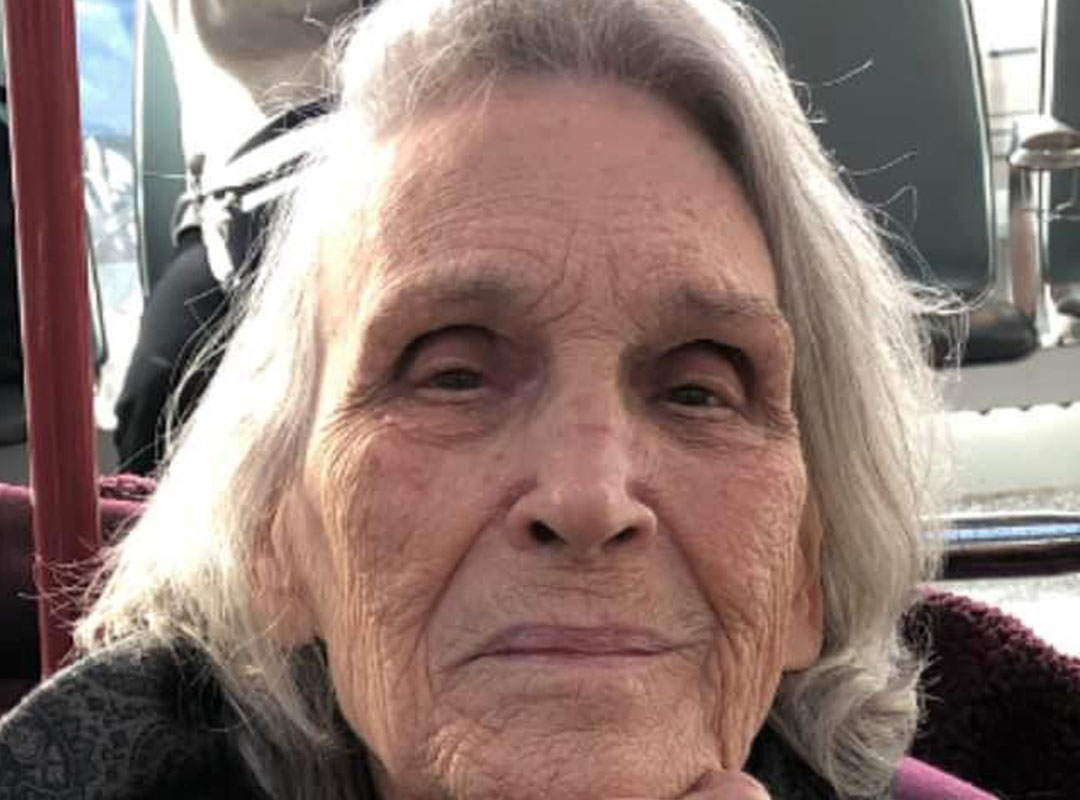
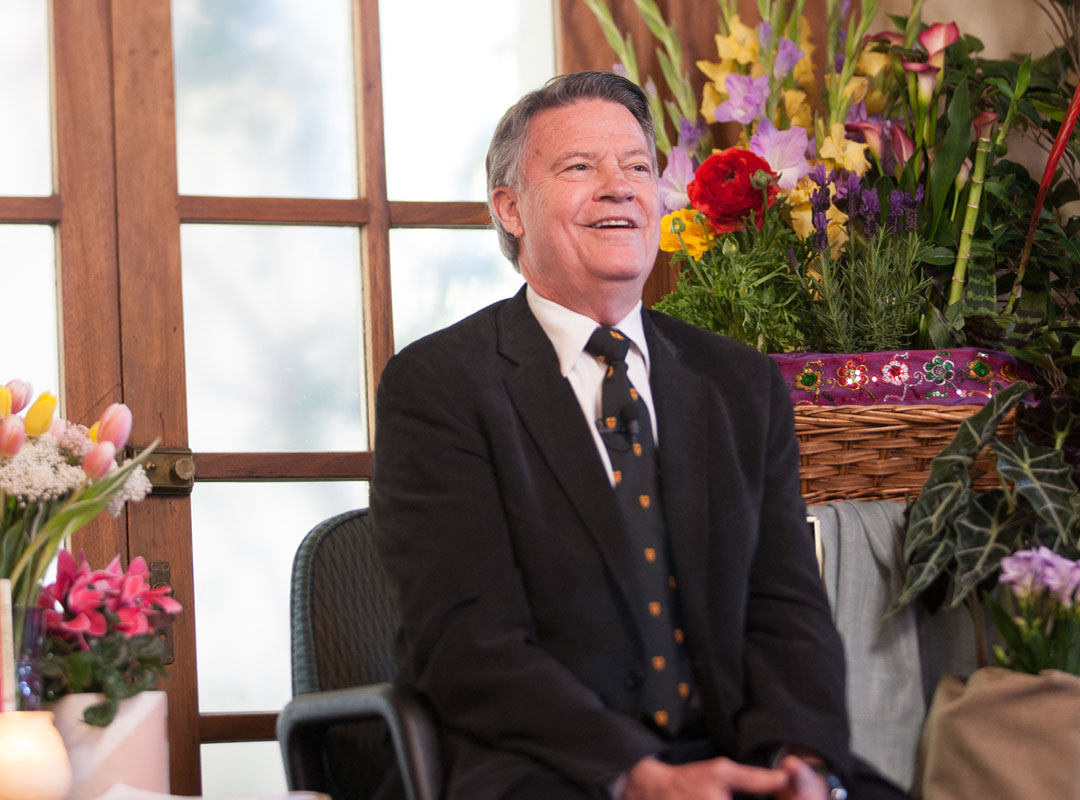
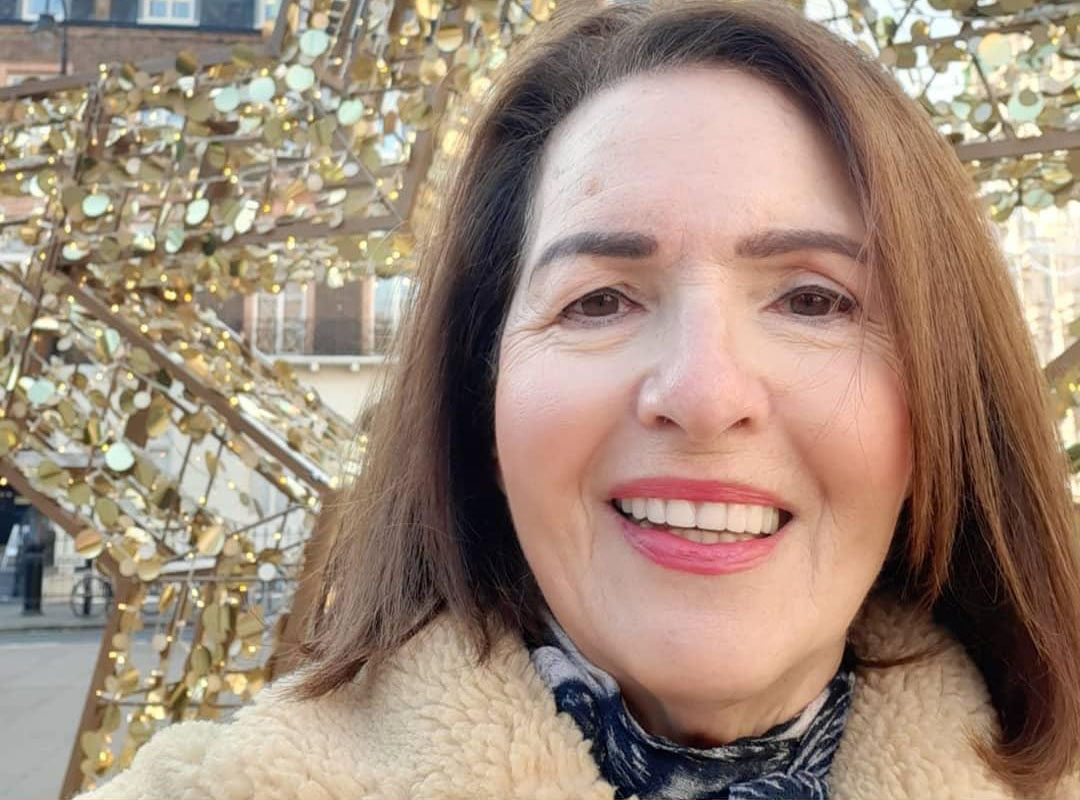
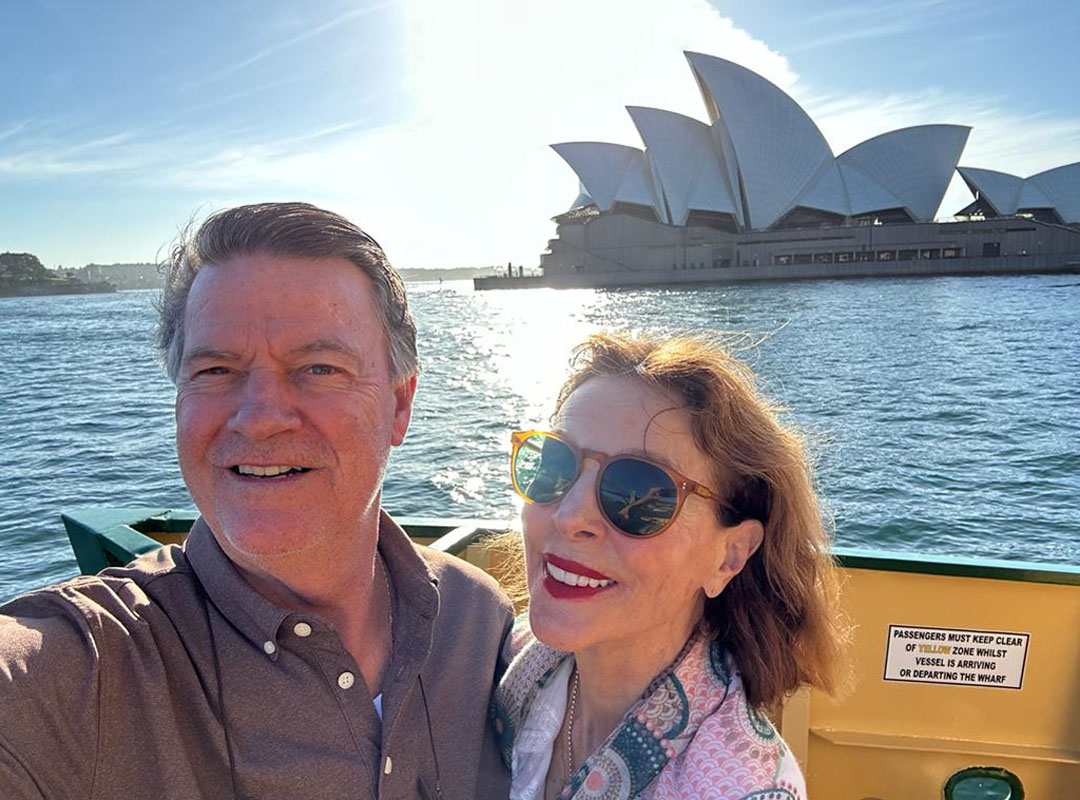
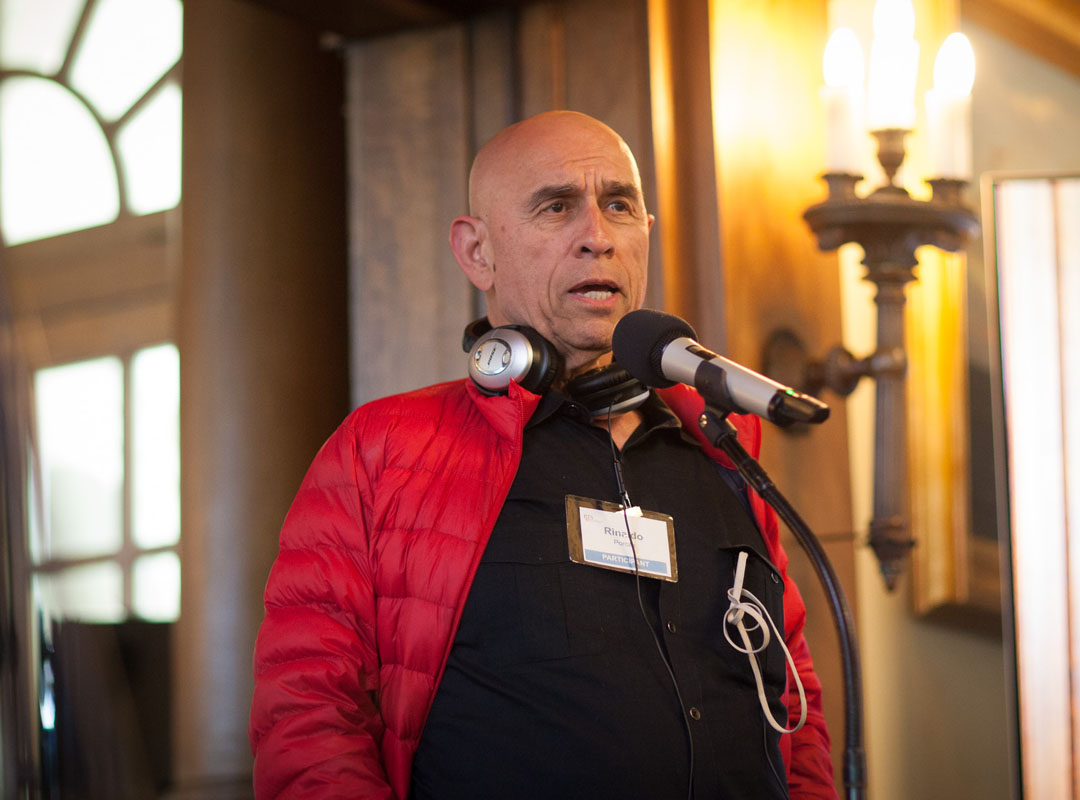
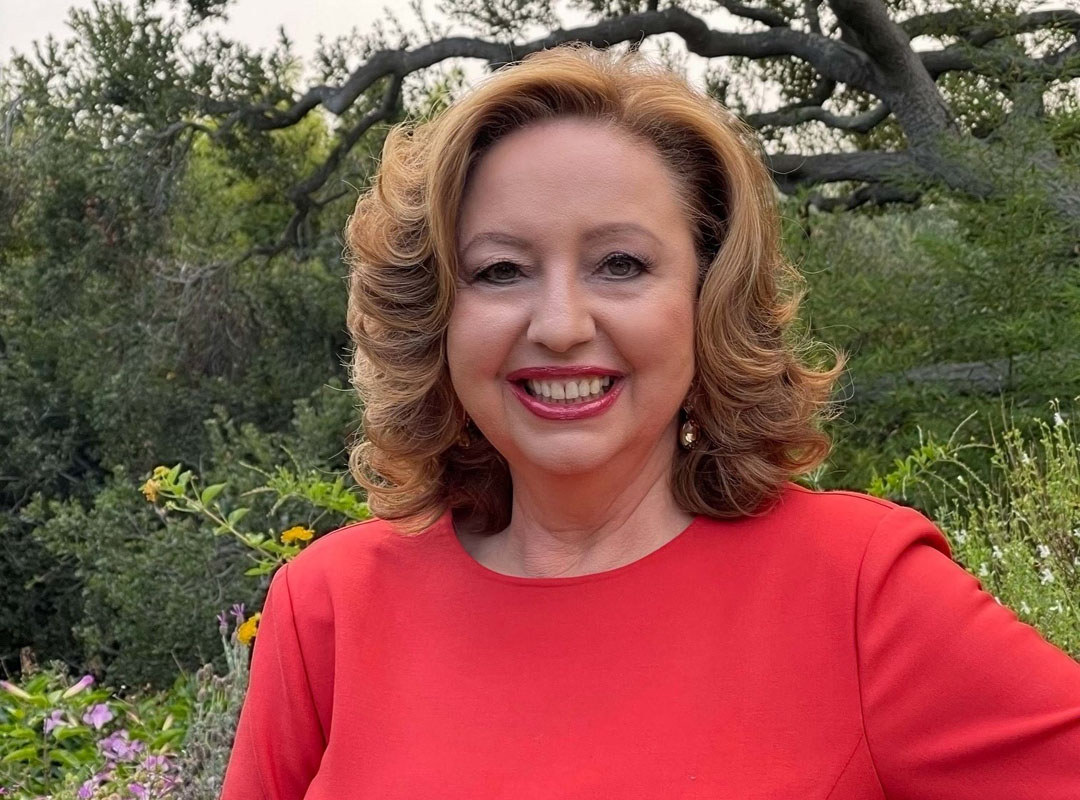
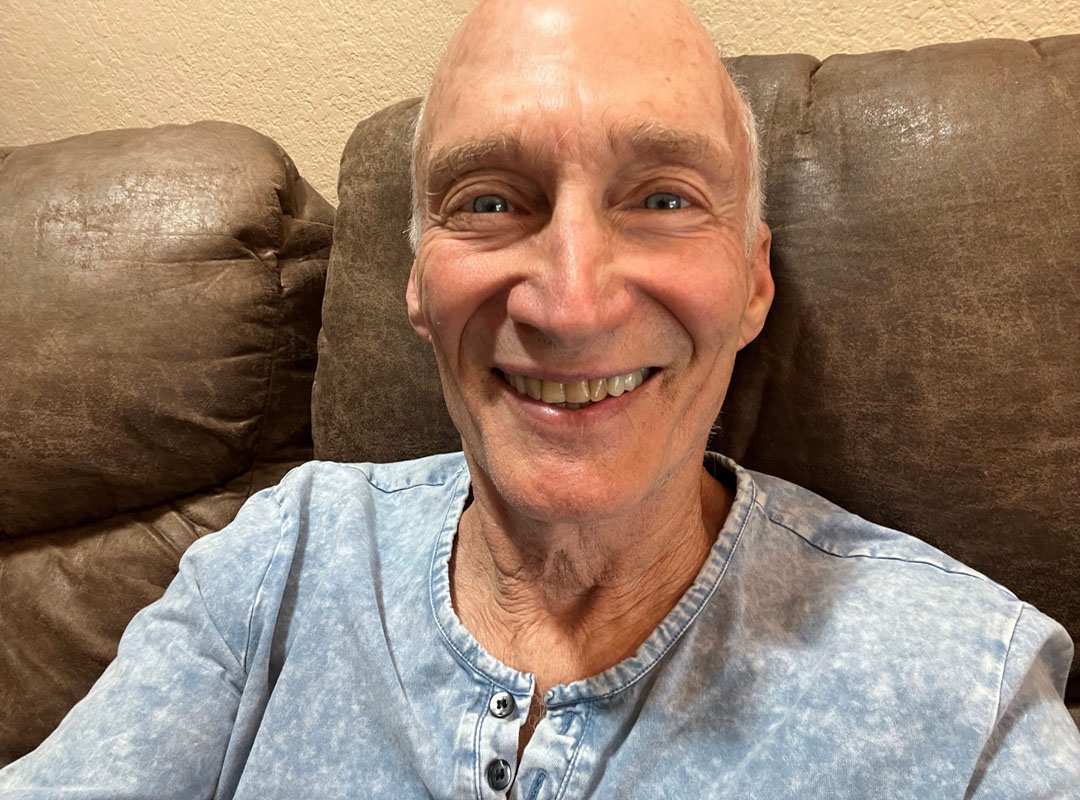
I am so touched; how beautiful, powerful and also sweet ! Thank you John for this insightful article ! Loving you – Gudrun
Makes so many things clearer. Thank you, John, for your willingness to “show up.”
So enjoyed reading this article, and learning about the way JR worked. Would love to hear more. God bless you John and all that you do.